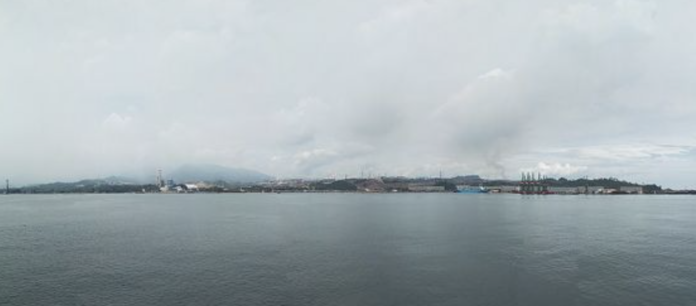The green revolutionaries would like to convince us that their solutions are better for the environment and include electric vehicles. According to the Biden administration, an electric vehicle is like magic and can solve all of the world’s problems.
There is a dark side of the green revolution, which is supposed to save the world. An industrial village in Indonesia is a prime example of the dangers of the unrelenting push for EVs. People who work in the Indonesia Morowali Industrial Park, (IMIP), call it a “tainted town” due to the dangers and pollution that comes with mining nickel at such a fast pace in order to meet the demand.
Wired reports that Labota used to be a fishing village a decade ago. Today, it is a sprawling, multi-million dollar city center around IMIP. The complex covers 3,000 hectares (7,413 acres) and includes steelworks, coal power stations, manganese processors and an airport. It was formed as a joint venture of Chinese and Indonesian industrial firms. This is the core of Indonesia’s push for nickel, which is a key component of electric vehicles.
It is a costly undertaking to extract all the nickel possible for car companies and governments eager to make a profit off of the rush to produce it. This drive towards an EV future is a serious environmental disaster and a huge human cost.
An once beautiful island is now surrounded by plumes of brown smoke and pollution. The island’s forests and fishing areas have been destroyed and its communities can’t cope with the economic destruction and crumbling infrastructure caused by the influx workers.
These workers are also getting sicker and more seriously injured, and they are even dying. Wired reports that IMIP has led to an epidemic of eye injuries, respiratory problems, and sickness among residents. Nearly half of patients who visit a local health center have breathing problems, and a significant number are suffering from damage to their eyes.
Wired spoke with an 18-year old who has ongoing breathing problems but still works for $15.75 per day. He told Wired that sometimes it was difficult to breathe. “I’m worried, but I can do nothing.” The wife of one worker said she and her husband wanted to leave the island before any further actions were taken.
Others have died in unsafe working conditions, such as not being able to wear safety helmets or using inadequate lighting and gear. Wired was told by one advocate that “massive exploiting workers, the environment and residents” is a grave violation of human rights. It is not surprising that many of the island’s companies are Chinese.
Residents are also suffering from the deaths, injuries, and illnesses of workers. Nearly 22,000 acres have been destroyed by nickel-mining operations. Remember how greens lament the loss of rainforest in other parts of the country? – making the island vulnerable to flash floods that can destroy homes by the dozen.
A researcher for non-profit said that the “face of this place” has been transformed. It’s almost unrecognizable. It’s almost like a city dropped in paradise.
Industrial damage has decimated the local fishing industry, once the bread-and- butter of many. The water around the island is blackened by accidents and waste dumping.
One fisherman stated, “Sometimes we only catch enough to feed our families.” “Soon we won’t even be able to have that.”
All this destruction and human cost is in contradiction to the optimistic rhetoric of the greens about how EVs can save us all from certain doom.
Pius Ginting, coauthor and director of the Rosa Luxemburg Foundation report on the industry, said that “labor exploitation, economic injustices and environmental degradation are undermining [the socio-ecological] transformation promised by electric cars.” The public must be aware of the truth.
Ask your friend IMIP questions the next time they try to virtue signal you about how wonderful EVs are. The human and environmental costs of mining so much nickel from the Earth can’t be justified by the left, but it doesn’t matter to the rational climate alarmists.


